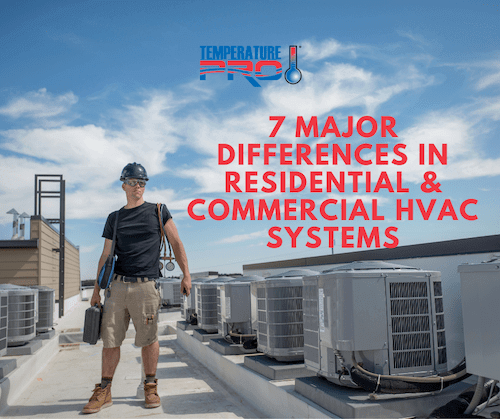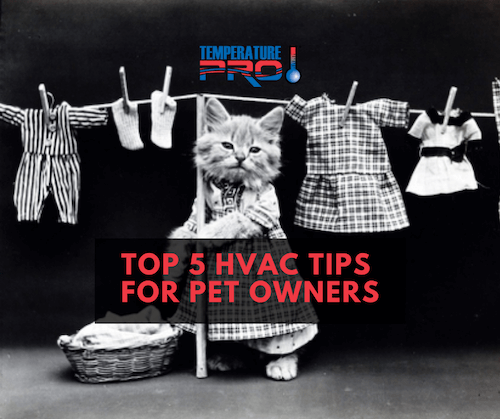
An HVAC system works to ventilate, cool, and heat the building it services. The requirements of living space are not the same as those of a commercial building, though, so two separate HVAC systems have been developed to fulfill different needs. Let’s take a look at the difference between the residential and commercial HVACs available to you in Charleston, South Carolina.
1. The Cost of Maintenance
Commercial HVAC systems must be installed and maintained by skilled tradespersons as they are more complex than residential systems. The industrial components of a commercial HVAC unit can cost more to replace, as well. Since HVAC technicians each specialize in different systems, be sure to find an experienced and knowledgeable tradesperson who will understand the challenges of your particular HVAC setup.
Periodic maintenance by a professional HVAC technician will be required. Request a specialist in either residential or commercial HVAC in Charleston, SC, to keep your unit running efficiently.
2. The Complexity of the System
Residential HVAC systems have a less demanding job than commercial HVAC units and are required to maintain smaller, less diverse indoor environments. On the other hand, industrial HVAC systems must accommodate a more significant number of occupants and adapt to the needs of the industry being carried out in the building. Commercial buildings and the HVAC systems that keep those buildings properly ventilated are often in constant use. Therefore, a commercial HVAC system carrying a heavy workload must be resilient, and it contributes to the complexity of engineering required.
3. Placement
A residential HVAC unit fits well alongside a house or in the backyard. But when determining the ideal location for a commercial HVAC system, several important factors must be considered.
- Can maintenance be conducted on the HVAC unit without disturbing the flow of work within the commercial building?
- Will the noise created by the HVAC system affect the workers and businesses nearby?
- Where can the HVAC equipment be installed if commercial space is at a premium?
For these reasons, most commercial HVAC units in Charleston, SC are kept on rooftops or inside evaporative cooling systems.
4. Size of the Unit
Due to the large amount of space that commercial HVAC systems must ventilate, the size of the system itself is larger than a residential HVAC unit. Additional components are also required for a commercial HVAC system to function efficiently: a condenser fan, a compressor, an evaporator, thermostats, dampers, and blowers. For this reason, you can also expect commercial HVAC units to consume more power than a residential unit.
5. Type of Equipment
You will find that commercial HVAC in Charleston, SC are highly specialized, built to cater to the specific needs and demands of the commercial building they service. The components of the commercial HVAC system must also be durable to withstand the demands of heating, cooling, and ventilating an industrial facility. In contrast, a residential HVAC unit does not need to be extensively customized as there is less variation required in home environments.
6. Drainage Demands
A commercial HVAC system must process airflow for more significant business buildings. Several pipes are necessary to facilitate drainage along with enough catcher pans to prevent an overflow of liquids. A residential unit can function effectively with just a single drainage pipe and pan.
7. Mechanism Format
HVAC equipment for residential purposes is manufactured and installed as a standalone system. Some parts of the unit are housed within the residence; other components are outdoors. But a commercial HVAC system may need to be further customized depending on where it is installed since an industrial unit uses modular components rather than a standalone format. Since modular components can be individually manufactured, modified, repaired, or replaced, a modular setup is more efficient during repairs of commercial units.



